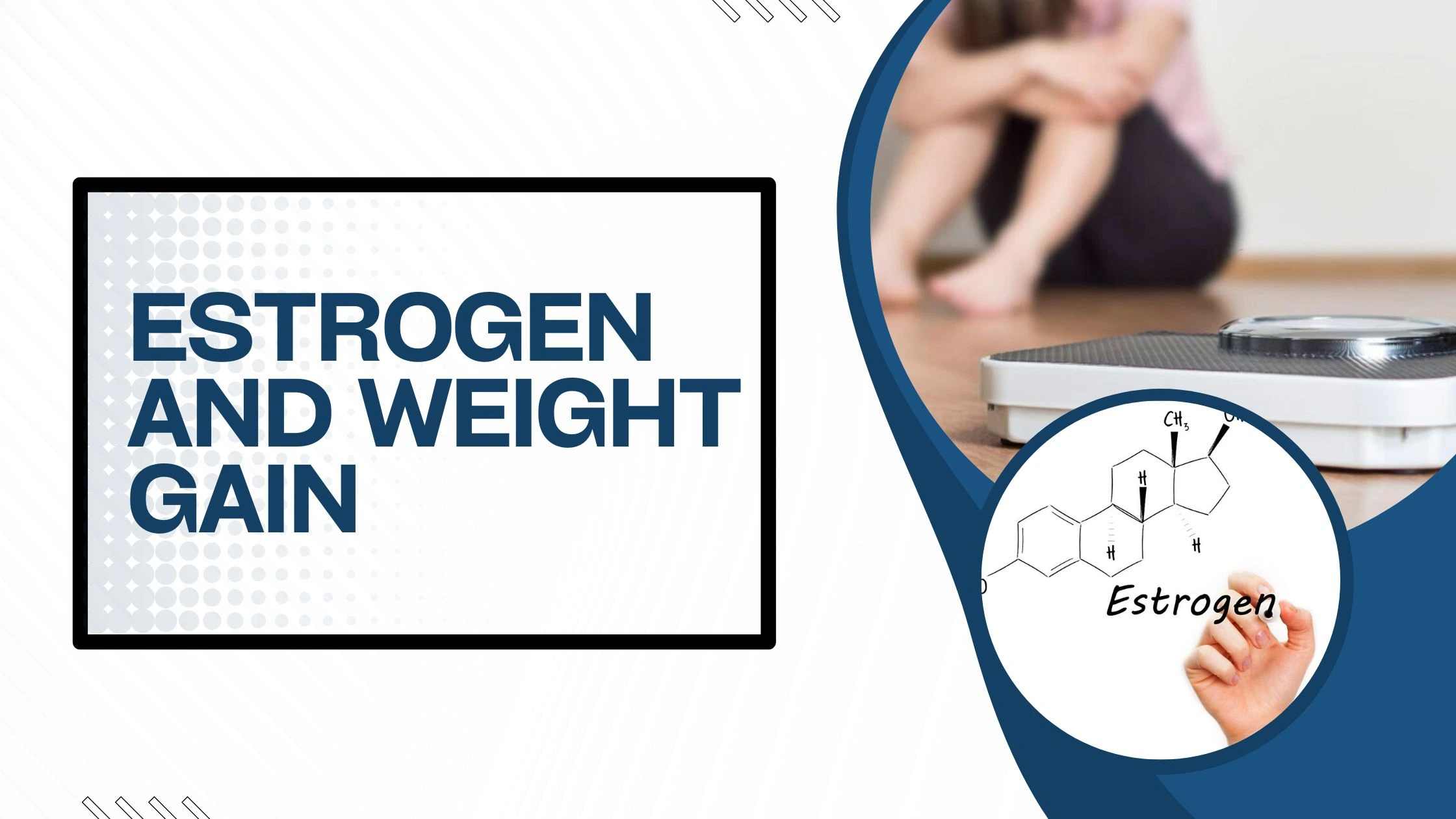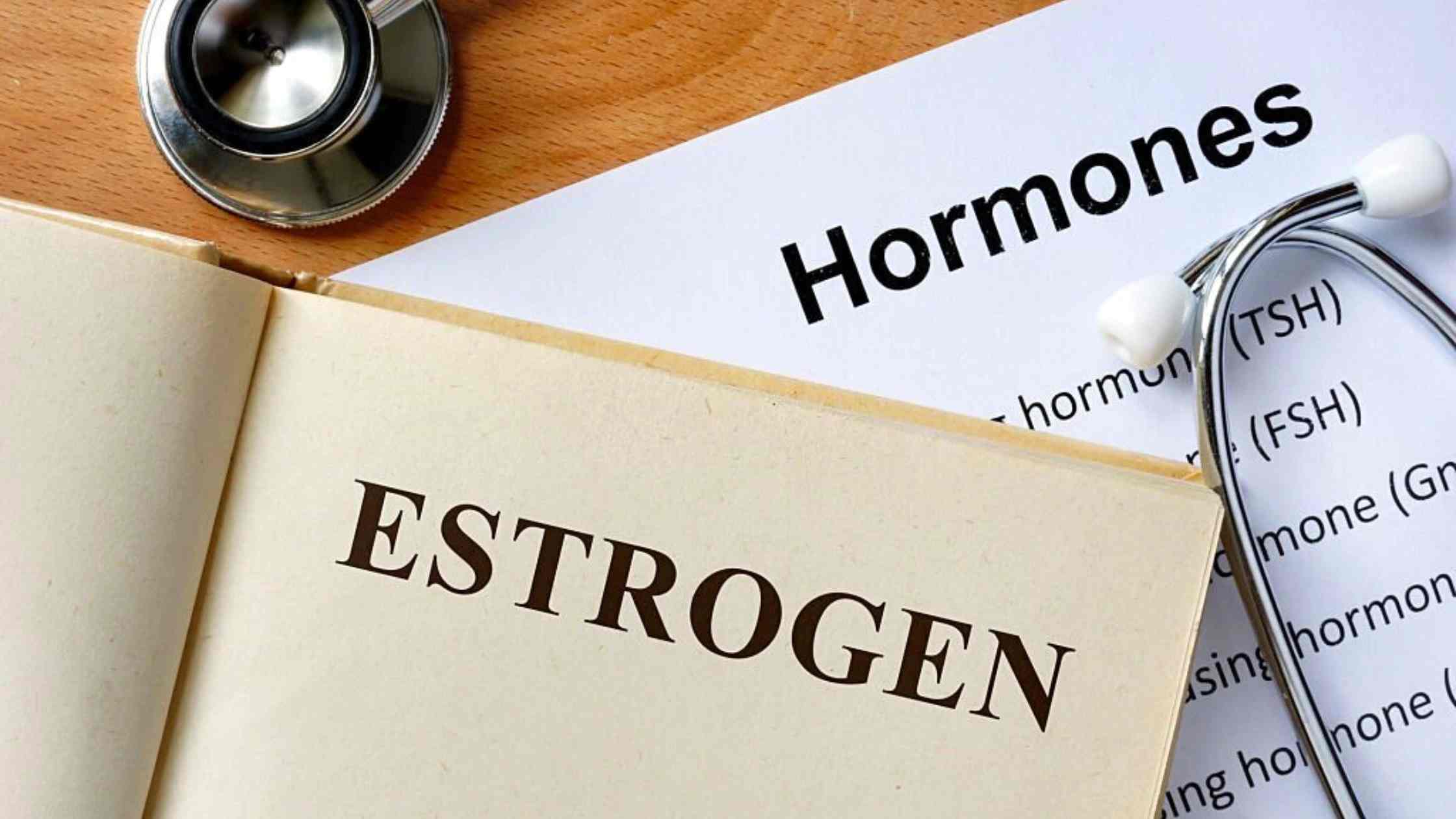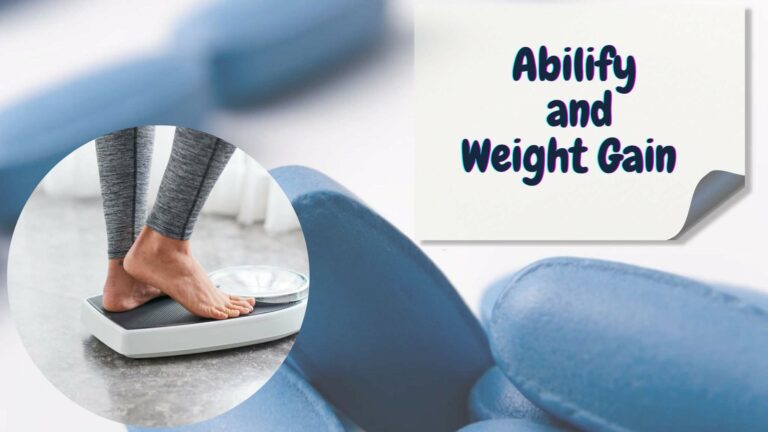Estrogen-Induced Weight Gain: How Estrogen Contributes To Weight Gain?

There is a common societal misconception that weight gain is caused by binge eating and lack of physical movements only. But it can happen because of many other factors too. One of the common reasons behind excessive weight gain can be hormonal imbalance. People who are affected by hormonal disorders can develop weight gain even though they might have tried methods to lose weight. One of the hormones that play a crucial role in weight gain is estrogen. Both an increase in estrogen and a decrease in estrogen can impact your weight.
In the following article, you will be guided on various aspects of the hormone estrogen and the reasons that constitute an imbalance in its levels. On further reading, you can find out how estrogen can cause weight gain and what are some of the ways you can adopt to beat the weight gain process due to estrogen levels. So jump right into the article and educate yourself on how estrogen can cause weight gain!
Estrogen: An Overview
Oestrogen or also called Estrogen is a steroid hormone that is associated with both the male and female reproductive process. In females, this hormone is the major reason behind the building and regulating of the female reproductive system and secondary sex attributes. There are three types of estrogen hormones. They are estrone, estradiol, and estriol respectively.

Among these, estrone is the weakest and estradiol is the most potent. Also, estradiol is the most popular estrogen used for hormone replacement therapy and is approved by FDA. As a reproductive hormone, estrogen plays a major role in the growth of reproductive tissues and follicular development. A minimum level of estrogen is necessary for the proper functioning of organs like the ovaries, vagina, breasts, and uterus. Many factors such as pregnancy, older age, menopause, obesity, etc can affect the levels of estrogen in your body.
Reasons for Estrogen Imbalance
An imbalance in estrogen levels can result in many problems in your body. It can affect your menstruation, sleep, mood, sexual health, etc. Many factors affect your hormone levels.
Some of them are listed below:
👉 Pregnancy: Pregnancy can be a major factor behind hormonal imbalance. Some of the hormones that get imbalanced during this time are estrogen, progesterone, and testosterone. Estrogen levels spike up during pregnancy and reach their highest levels in the third trimester.
👉 Menopause: During menopause, your estrogen levels reach the bottom. This condition is characterized by symptoms like mood changes, wrinkled skin, and hot flashes. By consuming foods such as soy, flaxseeds, dark chocolates, etc you can boost estrogen levels in your body during menopause.
👉 PCOS: PCOS aka Polycystic Ovarian Syndrome is a kind of hormonal imbalance that affects women. When you have PCOS, your body generates excess male hormones called androgens. PCOS can cause abnormal activities of estrogen and estrogen receptors (ERs) which can lead to an imbalance in the menstrual cycle and unusual hair growth.
👉 Unhealthy eating habits: Foods that are rich in red meat, refined carbs, and processed foods can increase your estrogen levels. Eating foods with high sugar content can lead to inflammation and pressure on your adrenaline glands, which in turn can be a major reason for hormonal imbalance. When you have excessive estrogen in your body, it can lead to a slower metabolism, loss of memory, muscle depletion, lower libido levels, and depression.
👉 Diabetes: Studies have shown that type 2 diabetes and estrogen imbalance have a close connection. When you have a hormonal imbalance, it can worsen the symptoms of diabetes. A study published in Endocrine Connections in 2019 elucidated the close association with sex hormones, obesity, and type 2 diabetes.
Some other causes of hormonal imbalance in women include thyroid issues, stress, birth control, etc.
You might also like to read: Does Gabapentin Cause Weight Gain? All You Need To Know!
Estrogen-induced weight gain: How does it happen?
Both higher and lower levels of estrogen can result in weight gain. When your body has higher levels of estrogen, it can stimulate the pancreas to produce more insulin. Higher levels of insulin can cause resistance from your cells. This is called insulin resistance. Insulin resistance can block your fat and liver from properly responding to insulin. As a result, your body can’t convert sugar into energy which results in increased sugar storage. High blood sugar can lead to weight gain.

In women who are affected by menopause, estrogen levels can be lower. When your body identifies that it doesn’t have the proper amount of estrogen levels, it tries to create it by other means. One of the ways the body can increase estrogen levels is through fat cells. Now the body needs more fat cells, which it creates by converting all energy sources to fat molecules. This will lead to abnormal fat build-up, especially in areas like your abdomen.
Ways to overcome weight gain due to Estrogen
You can follow some methods to keep your estrogen levels at an equilibrium.
Some of these tactics are provided below:
- Keep your weight down: If you are already suffering from obesity and overweight symptoms, you must try to keep your weight down. Studies have shown reducing weight can be beneficial in lowering the risk of chronic diseases that are caused by lower levels of estrogen.
- Increase your fiber intake: A diet that involves fiber-rich foods can keep your increased estrogen levels at a controlled amount. Food items such as vegetables, whole grains, seeds, legumes, etc are considered high-fiber foods. These foods can aid in your digestion and balance the estrogen levels in your body and thereby can reduce the risk of certain diseases.
- Exercise regularly: Exercising has a powerful role in keeping your estrogen levels in a controlled state. A study published in the Journal of Clinical Oncology in 2012 described the role of exercise in balancing estrogen levels in your body based on certain randomized controlled trials.
- Drink more water: A seemingly simple process such as drinking water can have a major role in regulating the estrogen levels in your body. Studies have shown that poor water intake can increase the levels of toxins in your body and can cause poor perfusion of the kidneys and liver. By drinking enough water you can remove the toxins from your body and can regulate the proper functioning of the hormones.
- Keep processed foods away: Processed foods are rich in gluten and sugar. These food items can cause inflammation and pressure on the endocrine glands. So try maximum to avoid the consumption of processed foods. Replace them with organic and natural foods and snacks.
- Say no to alcohol: A study published in Breast Cancer Research journal in 2015 found that alcohol consumption can interfere with estrogen levels in your body and can lead to higher levels of estrogen in your blood. When your estrogen levels are beyond a level, it can cause many medical conditions including breast cancer.
Final Thoughts
On analyzing the points mentioned above, one can conclude that estrogen can have a crucial role in weight gain. Estrogen is a major steroid hormone that impacts the reproductive functions in women. Higher levels of estrogen can lead to insulin resistance and thereby weight gain. In women, who are on the verge of menopause, estrogen levels can be lower. This can increase fat deposit and thereby weight gain.
So, it is necessary to have a controlled and normal level of estrogen in one’s body. By adopting certain dietary and lifestyle changes, one can reduce the weight gain caused by an imbalance in estrogen.





